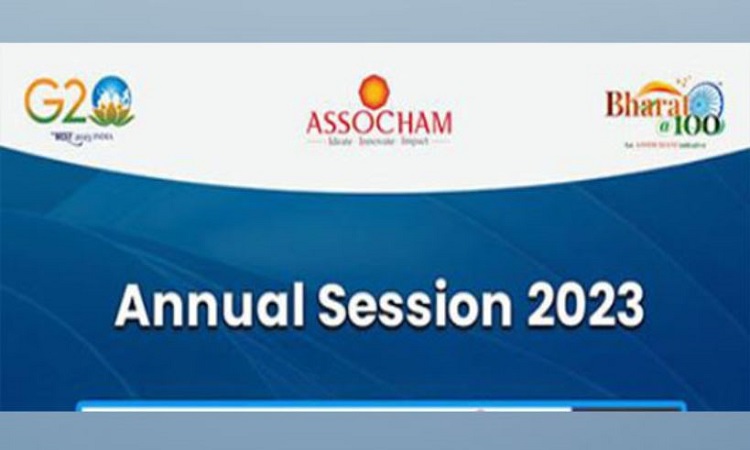
New Delhi: With India aiming to become a leading knowledge-based economy, this is an opportune moment to deliberate on strengthening the IP ecosystem and reinforcing our global positioning. India has been on a rising trajectory in the global innovation index and has risen from the rank of 81 in 2015 to 40 in 2022. This consistent improvement is due to immense knowledge capital, a vibrant start-up ecosystem and the work of private and public researchers. We are now poised to be among the Top-10 nations in the global innovation index and with the collective efforts of the government, academia, industry, legal fraternity and technology ecosystem, we will achieve this goal, said Justice Amit Bansal, Delhi High Court at the Global IP Leadership Summit organised by ASSOCHAM.
"A strong IPR regime is crucial for its industrial and socio-economic growth, expanding the scientific and technological domain, ease of doing business and attracting new investments. The increasing number of patent applications being filed results in more appeals and patent infringement actions being filed in the courts. Earlier IPR cases were more focused on trademark and copyright infringements but in the last couple of years, the trend is moving towards patent and design infringement cases. India has embarked on a journey towards creating an enabling environment by putting in place an ecosystem that breeds innovation. Recognising the importance of nurturing innovation and creativity in a knowledge economy, we are taking great strides in strengthening the intellectual property ecosystem," he added.
"IPR regime in India has adequate safeguards in the form of enforcement of IP rights through the judiciary system. Indian courts have consistently enforced IPRs with judgements clearly expressing intent and purpose of our laws. The need of the hour is to also improve IPR education and awareness levels in the legal as well as general population in order to cultivate a host of professionals with business and legal acumen in IPR-related fields. Industry bodies such as ASSOCHAM have played a key role in creating IP awareness and handholding start-ups and MSMEs in order to protect their novel ideas while also bridging the gap between the government and industry," he reiterated.
Earlier, welcoming attendees at the summit, Pravin Anand, Chairperson, ASSOCHAM National Council on IPR and Managing Partner, Anand and Anand said, "Historical evidence shows that there is no shortage of ideas and great minds in the country. Earlier, there was a lack of faith in the system and as a result, many inventions were unprotected and we lost many great opportunities as a result. Today we are the 7th largest patent filer in the world with 66000 patent applications filed last year alone. This is a very healthy growth from a static 3500-4000 until the TRIPS Agreement. The percentage of grants has risen by 5.9% in the last few years from 13% to 18.9% which is still too low."
Speaking at the summit, Manisha Singh, Co-Chairperson, ASSOCHAM National Council on IPR and Founder Partner, LexOrbis said, "In the overall global ecosystem India as a country is at the right place. We had our first patent in 1856 and look at where we are today. The overall IP system has improved and substantial changes has taken place. 1995 is a benchmark as India signed the TRIPS agreement and the 2003 amendment act recognised the need for professionals in the evolving patent ecosystem. All the groundwork that has been done in the past two and half decades has put us in the right position to grow. The cooperation between the judiciary, government, various associations and trade organizations we are just a step away from being the world leader in innovation and showcasing our intellectual property initiatives."
In his vote of thanks, Dr. Hemang Shah, Co-Chairperson, ASSOCHAM National Council on IPR and said "There is no denying that the growth of the innovation ecosystem in the country is poised for further rise as seen from multiple data points. We have a strong IP legal landscape which is developing and the reforms that have been undertaken have benefitted all stakeholders."
The summit with the key theme of Strengthening India's IP competitiveness deliberated on important topics such as Reshaping India's IP landscape for Bharat@100, Strengthening India's IP framework and promoting technology & creativity and Cutting edge issues across the IP universe among others. (ANI)







